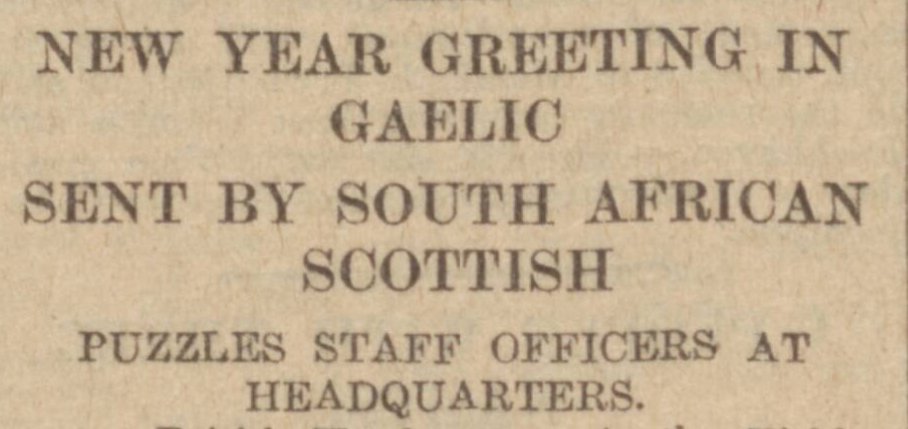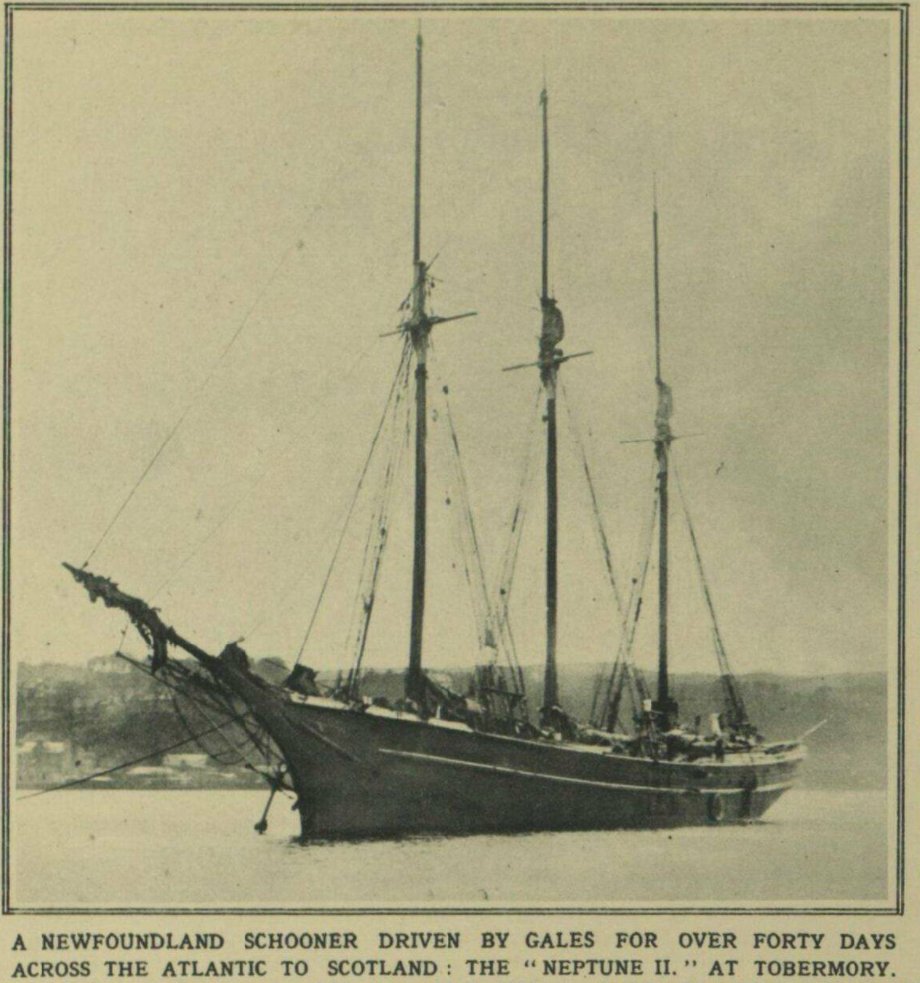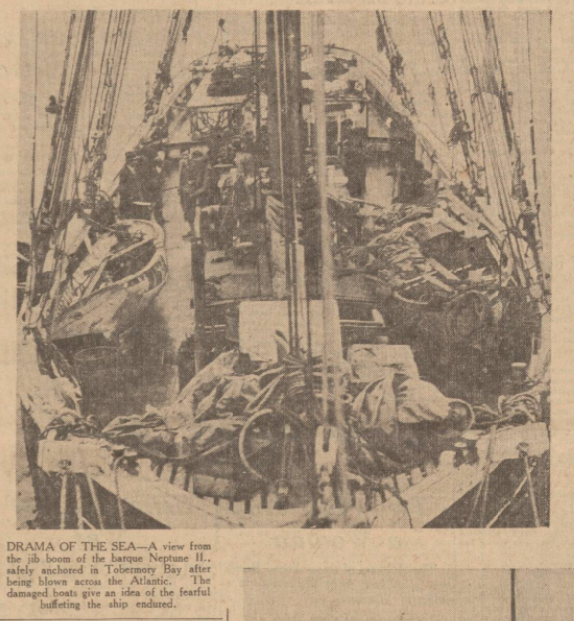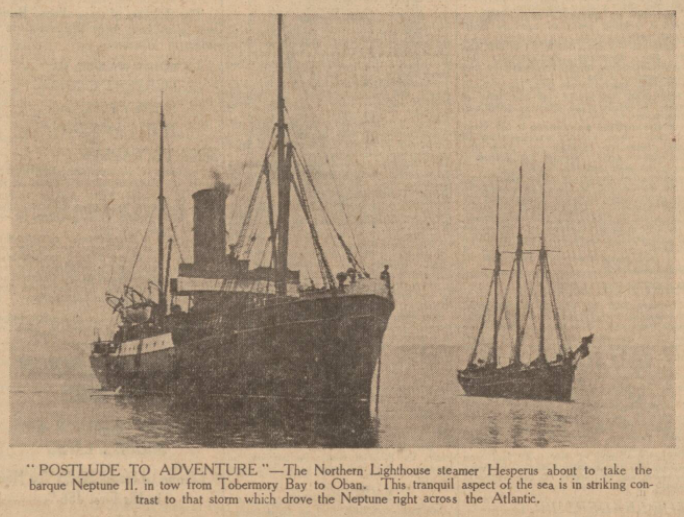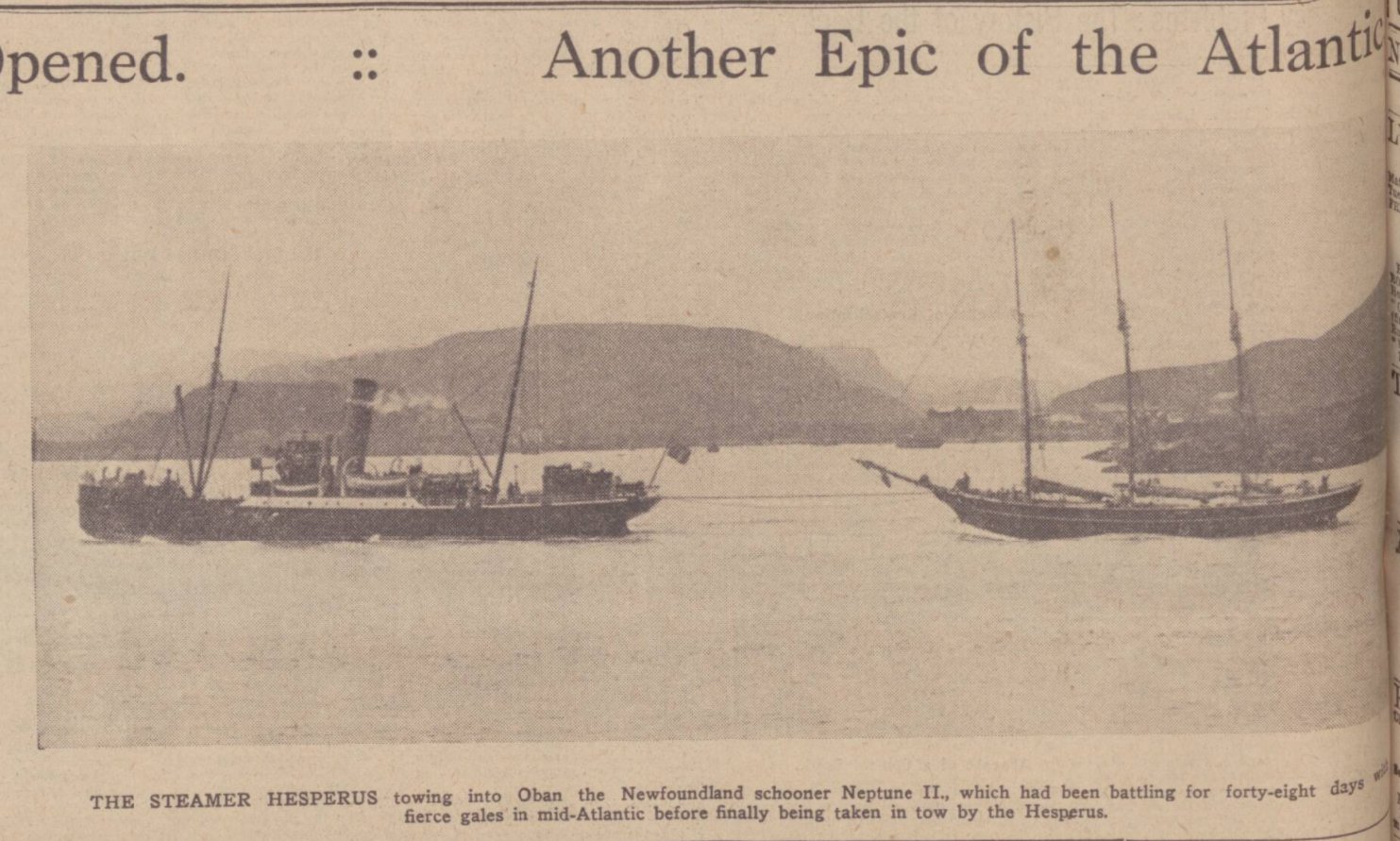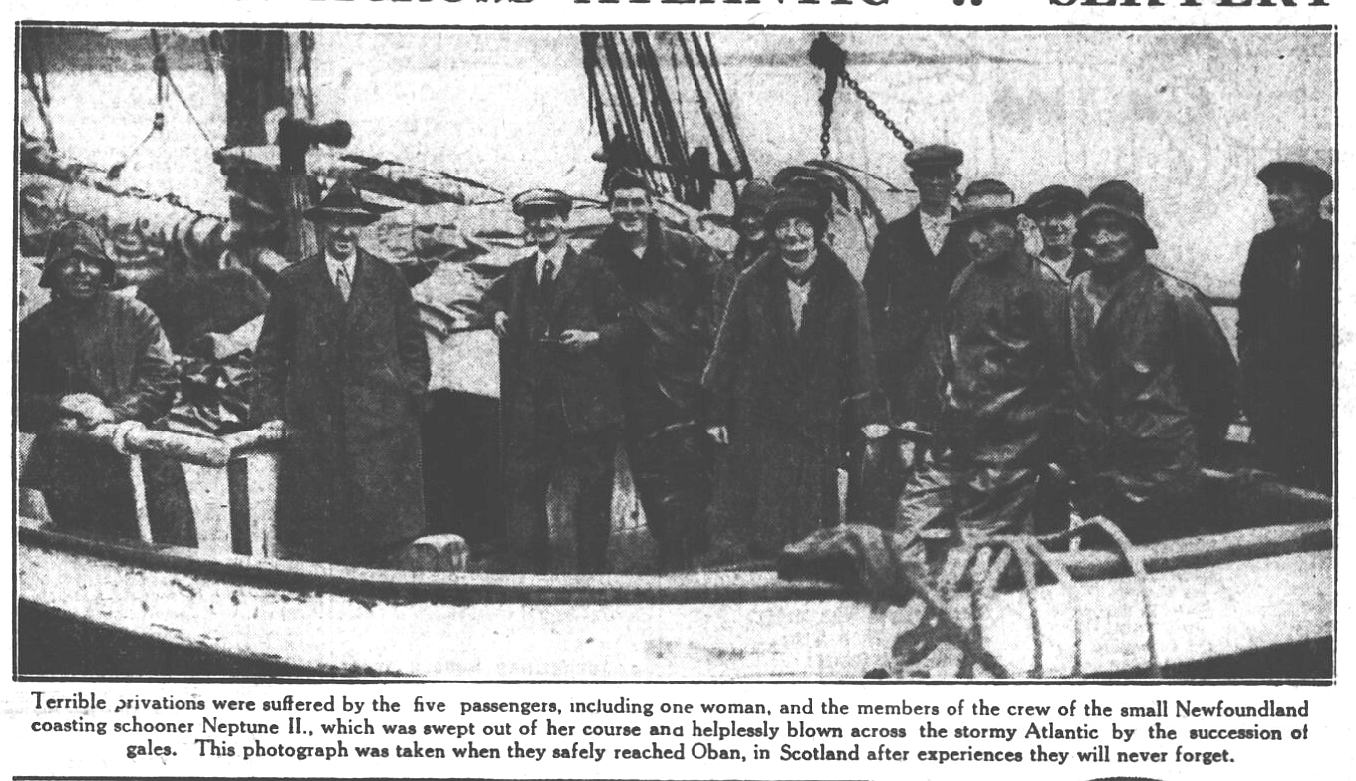I read a lot of Victorian newspapers researching stories for OWS. It seems like every week had a story about “A Message from the Sea”. I started collecting them and thought I’d share them here. I would guess that the vast majority are hoaxes, but maybe someone can cast some light on some of the more plausible sounding ones. I give them verbatim, with the details on how they were found.
S.S. Razorbill Boston, half a mile Pentland Skerries, March 4th, 1890; gale; ship carrying single reefed top-sail and foresail; all well; James Harrison, master. Please report
April 1891. in the Pentland Firth, by John Swanson, fisherman
“Atlantick, 31 Jany.—Ship Bergen, of Hamburg, going down. No Chance. God Help us. Ten Hands. Good-bye. Captain De Pinto. Please send to Hamburg.”
29th April 1883, Port Edgar pier, Firth of Forth
“God save us. Steamer Orion, from Aberdeen to New York, sinking. Captain John Adler, Aberdeen.”
March 1898. “south of Berwick”
“Schooner Jessie, of Shields, seven days from Stockholm, and within sight of Scotland. April 1, 1863. Four feet water in the hold, and the pump choked. The master washed overboard this morning. Two men and a boy remaining. Any one finding this is requested to communicate with the editor of any newspaper. 11 A.M., the boats getting ready. 11 ½ A.M. the water gaining rapidly.”
1864. “coast of Norway”
“Sunday, 7th May, 1882, twelve noon.—This bottle is thrown overboard by the undersigned passengers on the steamer Leif, on a voyage from Trondhjeim to Peterhead, Scotland. Weather calm. All well on board. By Observation, the ship’s place is found to be 58 degrees 27 minutes north latitude, and 4 minutes longitude from Greenwich. The finder is requested to forward the paper to the nearest authorities with the particulars of time and place where it was found, so that the direction and speed of current may be observed.
Ludvig Sporik and Fritz Mylere, both of Trondhjeim, Norway”.
July 1882. Vaila Sound, Shetland
“Brig Elfrida, Captain Jones, left Glasgow on April 12, 1890. Saturday, 19th, all sinking. No sight of land. Tom Smith, 40 Felgate, Edinburgh. Good-by.”
April 1890. Blatchington Beach, nr. Newhaven
[letter dated 21st Dec 1876, signed John Cook, chief mate of screw steamer Wells of Hull. Writer addresses wife, states vessel was then about 100 miles off Tholman, with main hatch stove and the gangways gone. Seas very heavy, and he feared vessel wouldn’t live out the night.]
January 1877. Caithness coast
“Brig Aurora, of Nova Scotia, N.B., going down. L. 31.7, lat. 41 N.N.E. Please forward to 4 Sandfort Street, New York, and oblige.—W. Higgins. God help us all.”
13th April 1897. Kirkcaldy beach
“Dr. Liz, I have ended my life since I saw you last, as I could not live without you, good-bye, give my love to all the girls—Yours, John White” [address in Edinburgh]
August 1894. Ferniehill Quarry, nr. Gilmerton
“North Sea, 100 miles from land. We are 102 miles from Buchanness. All hope abandoned. Swift, Arbroath. Captain and crew. Good bye.”
6th November 1887. Peterhead
“James Shaw, sinking off Bass Rock.”
April 1886. Newton Beach, Berwick
“June 6th ’74 –One hundred miles east of the Bell Rock, Schooner Margaret. Two men washed overboard yesterday. Boats stove in. Foremast carried away. We two are quite exhausted. We can’t hold more than an hour.”
July 1874. near Paper Company’s Works, Guardbridge
“We have had no communication now for five weeks. Our provisions are almost exhausted. Flour, oatmeal, sugar, tobacco done. Tea nearly done. Meal and potatoes scarce and bad. One death—an old man on 6th inst. All rest well. Very bad weather. [SIGNED] Rev. George Morrison. [sent from Foula]
January 1892. Maviagrind, Northmavine
“Mrs McKinley, 22 Henrietta Street, Dundee.—Sailing boat turned over. I am writing this on the keel.—From Bob McKinley. Whoever finds this bottle might communicate with my dear mother.”
August 1892. Black Rock, South Beach, Troon
[message written by Shetland passenger aboard Beaver liner Lake Ontario, despatched 31st August 1893, in latitude 54 degrees, 10 minutes north, longitude 45 degrees, 43 minutes west. Distance run from Liverpool being 1503 miles.]
9th August 1895. Hirstshals, Denmark (57 deg, 35 mins N, 8 deg, 57 mins E)
[message in German from S. Rothlaender, captain of Sphinx]
2nd April 1879. 40 miles out to sea by Cullen fishing boat
“January 3, 1877; brig Duchess, of Hull, twelve miles off Farne Lights, ship sinking fast, no hope of getting saved; boats stoved in. May the Lord help us! Good-bye.”
May 1877. Spittal Beach, nr. Berwick.
[in Norwegian] “The undersigned sailor, when this paper is found, will be no more, and sends his farewell greetings to his family. Ship now going down off Inch-Keith, 14th April.—Huna Gutta.”
June 1886. Cockburnspath
“Moll Head [Mull of Galloway] [sic], Sundaie.—Nous somme perdu, vaisseau abandone aujourd’hui. Belle Femme de Nantes, Capitan Lascelles. O mon Dieu! (Turn over.) A Capitan de puerta.”
17th September 1878. Port William.
“October 7, 1892. At se, smack Prince of Wales.—Dear Mother, –We are lying-to in a boraken of wind of Orknea, and the sea is ofal heavy; hardly posabel to us to live in it. If I never see you anie mor, God will provid for you. The two other man is keeping up.” [sic]
12th October 1892. Broadsea, Fraserburgh
[in French] “Felix Gilbert Vigaud, Jules Picaut, William Henri, Joseph Nicolas Breden, all four were shipwrecked on the coasts of Labrador, 25th October, 1878 at four morning. Their brig went ashore on a rock. Whoever will find this bottle will drink a glass of beer to our health. –F. Vigaud, captain of the brig Dauntless.”
3rd December 1879. St. Andrews, Orkney
“24th March – Progress, of Banff; half full of water; pumps; gaining on us; 60 miles off; heavy sea; to my wife—Forbes Wright, Aberdeen”
4th May 1898. south side of Burray
“14th March, 1894. Help Immediately. Ship foundered. The Aurora, of Dundee. All hands lost but myself and cabin boy. Latitude about 30 W., 64 N. Captain A. Reid of Dundee; Jim Brown, of Dundee”
27th November 1895. Granton West Beach
“Dreadful weather. Ship Marie Stuart sinking off Hull. Captain washed overboard three days ago. Eleven feet water in the hold. Masts all gone, and in another hour she will go down. God help us. Farewell.”
31st March 1883. “east coast of the Orkney Islands”
“Findhorn tell my mother we were drowned at sea.” [reported thought to be from “Milina” of Peterhead, sunk 1885]
December 1887. The Skerries, Shetland
“Ship Maori King, of Falmouth, March 13, 1887. Ship sinking; captain washed overboard. Tell Michall Good-bye. A. Tremayne. Good-bye.”
1oth April 1887. Tyninghame Sands
“Grupe [sic] vom Westland sendet G. Dichert, Hamburg.”
11th June 1891. Kirkcaldy Bay
“Supposed to be off Bell Rock, ship L’Orient, going down. 12.30 a.m., October 6th. Fearful sea. W.H. Sandsdown, master.”
November 1890. Berwick
“March 23. –Beeswing—Fearful weather; ship sinking. May God bless us. My poor wife is all my thought. God bless her. SIMPSON (captain)”
8th May 1883. between Burghead and Hopeman
“s.s. Swiftsure, bound Hull to Aberdeen; foundered off Berwick, June 12th 1882. Expect all to be lost, 11.30 P.M.”
17th June 1882. 5 miles east of Inchkeith by Mr John Walker, pilot.
“If bottle found, report wreck on Farne Island. Ship lost. All hands expected to be lost. Ship Solo, G.G.”
April 1896. Goswick Sands, nr. Berwick
“A ship leaking, 10 men overboard, no provisions, no water, just at starving with hunger, but we are all are a good crew. Please send word to my friends. Put this is the papers. Ship Warrior, 30 miles to the westward of Shetland. 3 Sept 1877.”
8th October 1877. Coldback, North Delting
“Alfred Colman, Wingrave, Aylesbury, Buckinghamshire, England, lost of the Auraima (?) Aurauna during a severe gale. October 24 1889.” [sic]
22nd March 1890. Ness of Sound.
“Ship Ocean Spray, lat 51. Deg. North, 30 deg. East, shipped a sea which cleared the decks; disabled, and in sinking condition. –February 14, 1870.”
April 1878. Whitenesshead, 3 miles westward of Nairn
“[dated June 23rd, vessel name unclear, port Liverpool] Sailors in danger of their lives. Thirty miles north-east from Peterhead. No help. May God help.—Yours Truly, William Smith, Leith.”
June 1891. Findochty
“Lat. 42.30 N., long 12.22 W. (North Atlantic), 21st October, 1880, Ship Bates Family sinking fast. God save us. –J.W.W.”
27th September 1881. Aberdeen Beach
[“written as the steamer Edith of Glasgow was sinking in sight of Kesh Light. Finder asked to communicate with the owners and signed James Hanlun, master]
1st February 1882. Dundrun Bay
“We, the crew of the Melancthon, of—[cannot be read] [sic]—are wrecked here on the rocks near Castile, France. We are destitute of the common necessaries of life, and trust in the Almighty for help.—John Tulloch, captain. Lat 49.25; lon. 15.17. For God sake! Deliver this when found to the nearest magistrate.”
April 1874. Lossiemouth Sands
“Thomas and Mary Ann Lamb, bound for Dunbar in Scotland, August 8th, 1865”
12th August 1865. nr. Long Croft, parish of Bo’ness by John Ferguson and John Dinwoodie of Kirkbride
“Dropped overboard from the ship Alaska, of Glasgow, from Newf’dland for Swansea, July 1st 1896. Lat. 51 north, long. 24.40 west.”
7th June 1897. Skerries, Shetland
“Ship Admiral, Pentland Firth, great distress, making water rapidly, sinking fast, Good-bye to my dear wife, Annie Anderson, Kirkcaldy. My last testimony. James Anderson.”
April 1886. Sinclair Bay , Wick
“15th February, 1879. –The ship Cleopatra is sinking fast. Bound from Liverpool to Belfast, with general cargo. God help me and the two remaining crew, four men being washed overboard. Any person finding this will please insert it in the Galloway Gazette. –James Roney, Liverpool.
June 1879. Bay of Luce
“Along with this bottle I commit my body to the deep. I have committed this rash act through misfortune. I am tired of this world. Give information to my father, please –William Quee, Richard Street, Glasgow. Before closing I commit my soul to God.—John Quee.”
October 1873. Coulport, on Loch Long
“March 1st, 14 miles S.E. Longstone, brig Martha, Peterhead; sinking fast. John Robson, captain. Nearly over.”
March 1890. Newton-by-the-Sea
“I, John Brown, drowned myself in the Clyde in Hamilton. Being in difficulties, I was sick of my life. No???? noes what I am going to do, and should my body be recovered when this is found kindly…?”
July 1888. River Clyde
“S.S. Albino, January 22, 1890—Albino of Baltimore, sinking fast, boats gone. God help us. F. Couch, captain; George Carr, 1st mate; Wm. D. Wallace, steward.”
March 1893. Big Strand, Laggan Bay
“T.H. Hill, s.s., City of Chester, 500 miles from Queenstown, Saturday, June 1880. Auckland, N.Z.”
June 1881. Cunningsburgh, Shetland
“Oswestry (s.s.) going down; 45N., 6W.; all hands on board. -J. Nicholls, May 5th.”
November 1881. Seafield, Leith
“[Mina was sinking, information to be conveyed to John Stewart, 8 Montague Place, Glasgow, SIGNED James Tod Stewart]”
12th August 1874. nr. Ardrossan
“August 5, 1865. My dearest Frank, –It is with regret that I take up the pen, for the last tome, to write unto you, as our once noble ship, the Victoria, is fast sinking. In a few moments all will be over; but remember me as your dearest and only love. So, good-bye! If any one finding it would greatly oblige the writer by forwarding it to the address on the other side.”
23rd October 1865. 12 miles W of St Abb’s Head by James Lawrie, master of Osprey, of Eyemouth
“At sea, March 12, 1870, ship distressed; all hands at pumps four days and nights, in succession. Ship Dread–, of Sligo J. McCann”
June 1870. Ullnish, Isle of Skye
“Ship Arkansas, mid-ocean, sinking fast, and no boats. Decks cleaned. A.C., 3rd December 1887.”
24th April 1888. bathing station on Aberdeen Beach by Peter Glendinning of 22, Shuttle Lane
[thrown overboard by two young fellows on the 14th December from s.s. Rotterdam]
July 1893. Noness, Shetland
“Sept. 1, 1879.—The ship Aurora is in distress out to east. Captain Taylor, 8 men, mate William Arnold. Ship will come in on east coast of Skerries. Cargo, timber. Masts cut down. Deck cargo all gone.”
September 1879. Lerwick
“[in German] “A poor orphan girl. I am a poor orphan girl without a home and without a friend, and am tired of life, and have therefor made an end to my sad life, and have therefore, unknown to anyone, thrown myself in the cool waves of the seas. If any person finds my body I beg of him to make it known and give me burial. My name is Emilia Kalb, Friedrichrode, Bachstrasse 7, but please do not think that I have been a bad girl, only poor and cripple.”
April 1897. Skeld, Shetland
“[written on business card of Mr G. Murray, passenger agent, 4 Waterloo Road, Liverpool] Sunday, 28th September. 1890.—Thrown from the s.s. Gallia (?), of the Cunard Line, when four days at sea.—James M. Duff.”
March 1891. West Shore, Fraserburgh
“[dated April 20th] Now five minutes to let you know we have taken to the boats, trusting we shall be picked up. Good-bye.—Frank Click, Petrel, Peterhead.”
11th May 1895. Yarmouth
[letter indicated thrown in North Sea at Bergen, Norway on Monday 18th January last. Signed “J.C.K.” writer from Peterhead]
March 1892. Aberdeen
“Wednesday, August 7, 1889—State of Nebraska, five days out. Weather fine. All well. (signed) F.R. Jordan, from Edinburgh; William Lowe, from Blairgowrie.”
March 1890. Melby, Shetland
“Lost, on the night of the 6th, the smack La Naide, and all the crew, 20 miles off Rattrayhead. –T.H. Taylor”
February 1866. 2 miles W of Burghead
“[on card from Kruder’s Hotel, Paris, written in French] Sailed 6th February 1881. Farewell to the Republic. Would I had my fair Fri…”
January 1882. “west coast of Orkney”
“3-12-89.—The smack Arethusa is fast sinking. If any one finds this tell Maggie Humphreys poor Jack is gone. Yours &c, F.M.G.”
December 1889. Powilliemont, Kirkbean
“S.S. City of Romans, Sunday June 6th 1897. Dear sir, This is to tell you that we are starving to death in the ship City of Romans. They are all foreigners but meself [sic]. We left Dover for someplace on the Clyde on the 3d of May, and, with strong westerly gales and snow, we drove off Faroe. I come from Skerries, so I will have to be done. God help us, for we will never see to.morrow. So, good-bye. I really do hope that anyone who finds this will publish it in the Shetland papers. There are eight of the crew dead, and the ones that are left will be dead to-morrow. So I will bid this farewell. I am. &c. A Shetlander. Please anyone who finds this publickation [sic] to tell my parents about me.” [no name given].
March 1898. East Burra Firth, Shetland
“Mid-sea, off Cape Wrath.—Schooner Ocean Bride, of Liverpool, in storm for four days. Masts gone, ship rapidly filling, complete wreck. Captain Hendrie’s two legs broken by fall of mast. Hopeless. [Signed] Wm. Massey, Burghead.”
April 1874. Nairn
“Wrecked at sea on the 27th Jan., 1876. Whoever finds this will forward it to 29 High Street, Dundee. J.C.”
April 1876. Montrose
“On board steamer Thomson, of Glasgow. Goodbye.”
1895. Litges, Spain
“[in German] 12th February 1890—In lat. 55 degs, 47 mins N., long 0 degs 14 mins W. The crew of our ship, Gazena, of Lubeck, despair of the ship and also of life. Captain’s name H.V. Aspern of Hamburg; Mate Johannes Pust? Of Robitz, by Staten; cook, H. Farake, out of Berlin.”
19th February 1890. between Benholm and Johnshaven
“My Dear Love, Send this to my mother and tell her I am gone. [signed] G.C.B., Hartlepool.”
10th March 1889. Cromarty Harbour
[Two letters from Mr. William Parker, passenger on board Ocean steamship France, thrown 1st June 1880. “Mrs Phillis Parker, care of Mrs Hughes, 25 Cook Street, Southampton, Hants, England. [weather good, all well on board]
5th June 1881. Cowie, Stonehaven by John Taylor
[Mr Paul Lange of Liverpool Amateur Photogphic Society sailed to Iceland from Leith in the Magnetic (s). Threw bottle from Westmanna Islands, South of Iceland July 3 1890. Found Nufsfjord, Loffoden Islands by the President Christie on 15th Jan 1891. Exact coords given]
15th January 1891. Nufsfjord, Loffoden Islands
“Call at M. ——–, Perth, or M. ————, Dundee [names given] [sic]. Just finished tea at In.ver.gow.rie. We have enjoyed it immensely. If the finder of this bottle will please call this mystery will be explained.” [later explained to have been thrown in at Invergowrie first Saturday of August 1882]”
March 1886. Blyth Sands
